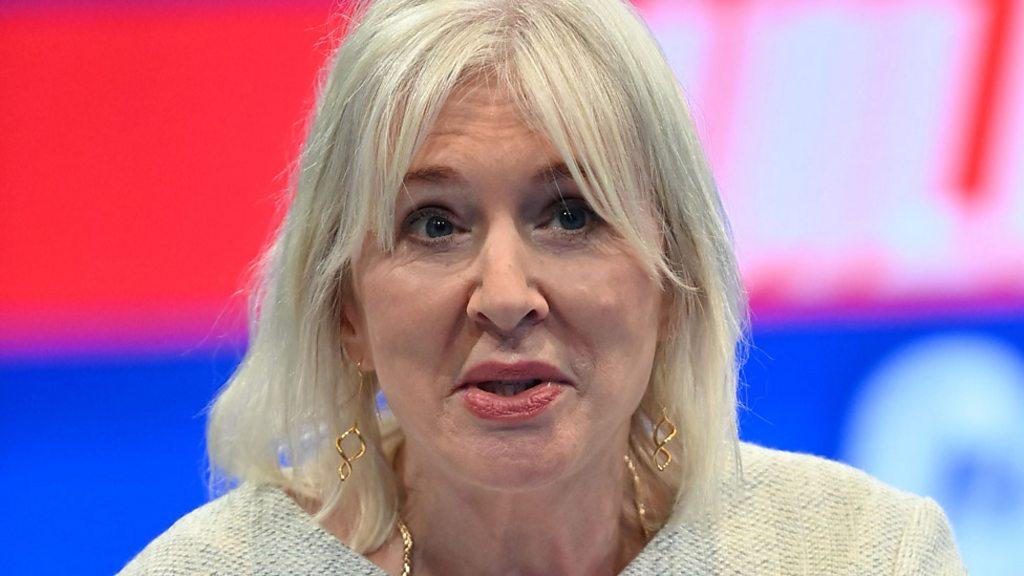The impact of Levelling Up on North East arts projects
- Published
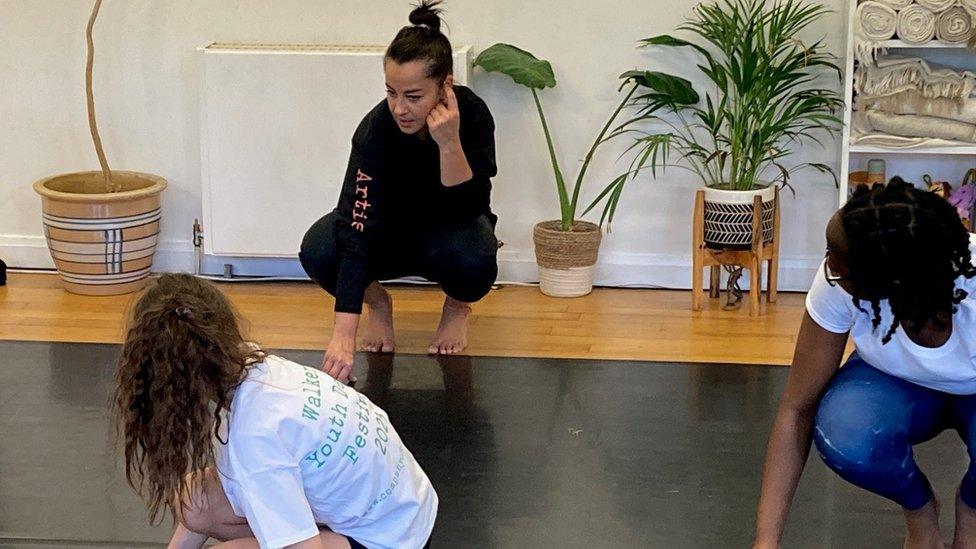
Company of Others, a dance and theatre organisation, is one of the winners with Levelling Up funds
Many organisations like the Tyneside Cinema in Newcastle are struggling to survive - with audiences failing to return to pre-Covid levels and a lack of local authority support. How is Arts Council funding distributed and how effectively is the government moving spending outside London?
You might not think there is a connection between Nadine Dorries and a former church hall in a deprived part of Newcastle, but what is happening there might just be the legacy of her time as culture secretary.
The Bricks, as the hall is now known, is the home of Company of Others, an organisation that has brought dance and movement to the working class community of Walker for the past seven years.
In November, it was awarded £220,000 by Arts Council England after being included in its prestigious portfolio funding programme for the first time.
It is one of a number of arts providers which appear to have gained from Ms Dorries's 2022 decision to direct the Arts Council to move some funding out of London.
This, we were told, would be cultural "levelling up".
'On a shoestring'
Company of Others' artistic director Nadia Iftkhar grew up in Walker but had to move away to pursue a career in dance. She returned to the area to offer the access to the arts she was denied.
When I met her, she was working with local girls grateful to access free classes.
Nadia said: "Like many arts organisations we have been operating on a shoestring, so getting this funding is a relief, but also a responsibility.
"What we are really trying to change is how people feel about living in Walker, so they believe there is something to be really proud of in this area, and there are lots of talented people here."
But a few miles away in the centre of Newcastle, the idea of cultural levelling up feels hollower.
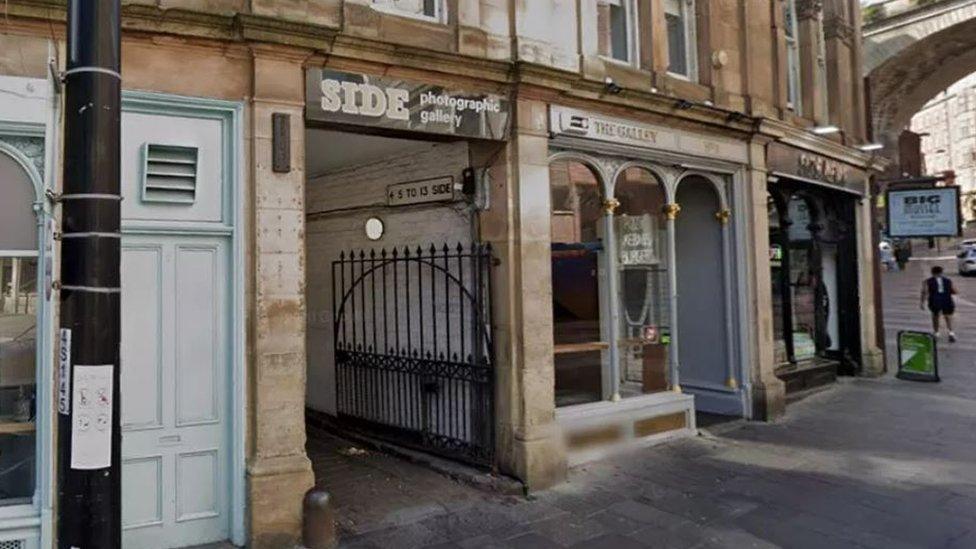
The Side Gallery, which opened in 1977, faces an uncertain future
Earlier this year, Newcastle's photographic Side Gallery was forced to close after losing its Arts Council funding, and struggling with big increases in energy bills.
An appeal to reopen it has raised £85,000, but after 45 years, its future remains uncertain.
The city's arthouse Tyneside Cinema is also trying to raise £150,000 in public donations to stave off closure.
It also failed to get Arts Council funding, but the real threat has come from the perfect storm of a post-pandemic decline in audiences and a rise in costs.
Interim chief executive Simon Drysdale said: "The primary problem is we don't have enough people going through the doors.
"It's improving gradually, but at the other end the costs of everything have risen by 30 to 50%."
He added the venue was trying to raise "significant" amounts of money with the aid the public - and if it did not it would not survive.
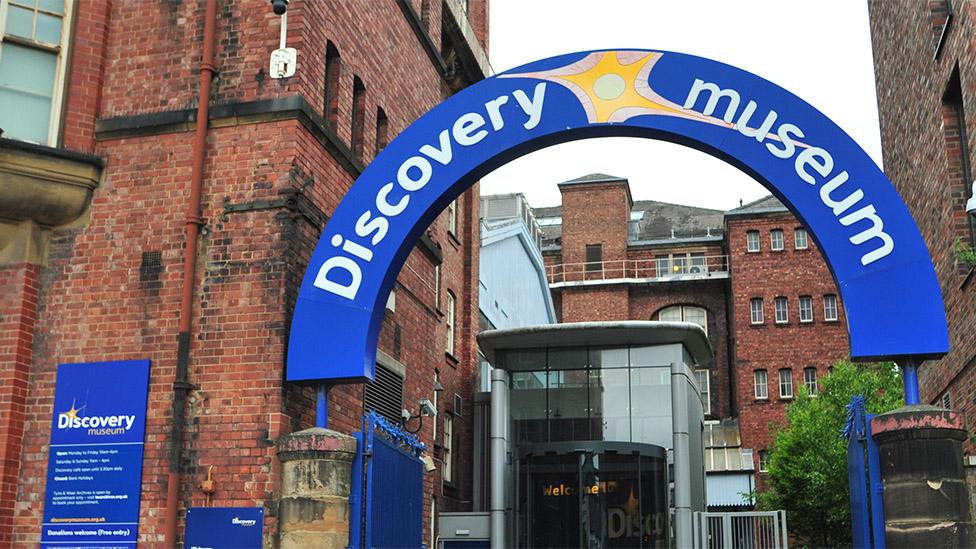
The Discovery Museum in Newcastle has a leaking roof and is using dehumidifiers causing its energy bills to rocket
Even those with funding face challenges.
Tyne and Wear Archives and Museums got more than £3m from Arts Council England, but that is the same sum it received in 2018 and running costs are now much higher.
The Discovery Museum in Newcastle is facing challenging times trying to cope with a leaking building.
Bosses are having to rely on dehumidifiers to keep treasures from rotting, which is contributing to rocketing energy bills.
'Going to be tough'
The organisation's director Keith Merrin said: "It is very tricky that we are dealing with the same level of Arts Council funding as we had five years ago.
"I have been incredibly encouraged to see other museums get funding for the first time and we have definitely seen some move of funding into the North East out of London.
"But speaking selfishly, for our organisation it's going to be tough."
And although the North East has been one of the beneficiaries of a shift in the distribution of money, it still has some way to catch up.
The North East received a 14% uplift in its slice of the latest Arts Council's Portfolio Fund, whereas London lost 9%.
But while that adds up to a £9 per person investment in the North East, even after the cutbacks, London is getting £17 per head.
But the Arts Council insists the North East did get a good deal with grants targeted at areas starved of funding in the past.
Bill Vince, its relationship manager based in the North East, said: "In the Tees Valley for example, we have now increased our investment by 66%, bringing in five new organisations. South Tyneside got the single biggest uplift in the North of around 350%."
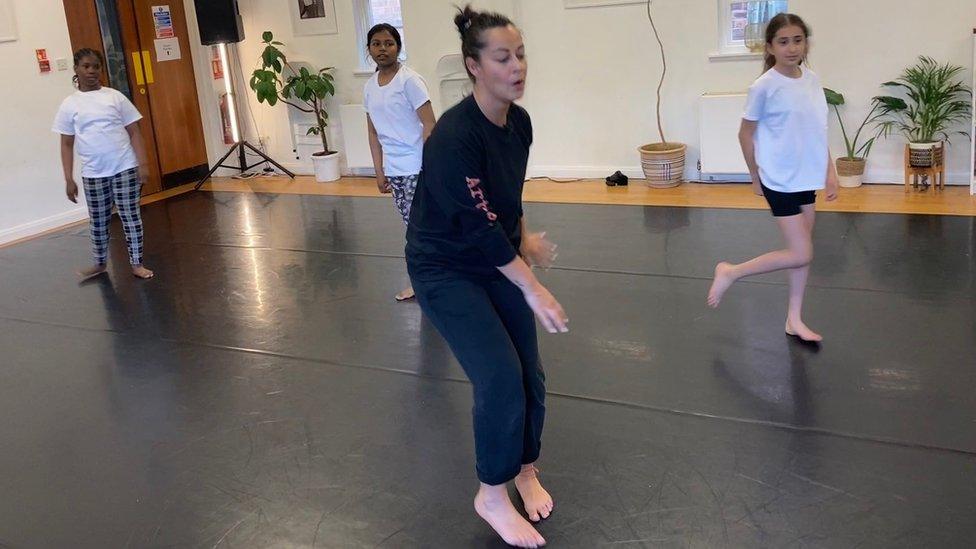
Company of Others' dancers rehearsing for a festival in Walker
And the government is also keen to defend its record.
Ms Dorries might have gone, but current arts minister, Lord Parkinson of Whitley Bay, hails from Tyneside.
He said: "Funding for the arts comes from taxpayers right across the country and the government wants to make sure people everywhere see the benefit of it.
"That's why we asked Arts Council England to make sure its funding was spread more fairly and why it is now increasing its investment across the North East and Cumbria, with more organisations receiving more money than before.
"On top of that, the government is supporting culture and heritage projects across the North East with more than £36m from the Levelling Up Fund, providing new jobs and opportunities in culture and the creative industries."
But there is one area where funding for arts and culture has shrunk dramatically.
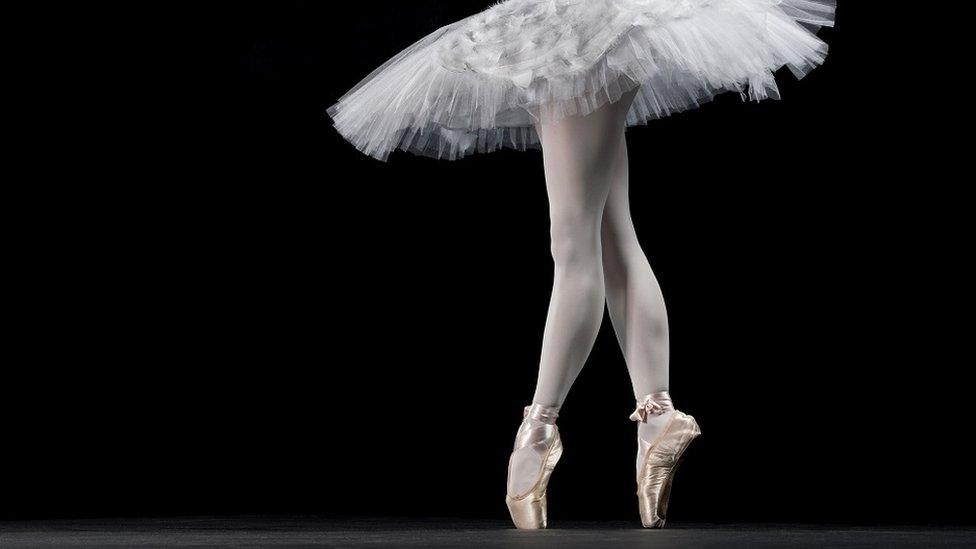
In 2022 then Culture Secretary Nadine Dorries decided to direct the Arts Council to move some funding out of London
The region's councils invest about a third less than they did in 2010 because of the squeeze on their budgets.
That has taken many millions of pounds of support out of the arts and many of the biggest reductions of local authority budgets in the country have been in the North East.
Newcastle City Council alone spends about a half of what it did 13 years ago.
Labour cabinet member on the council Alexander Hay said: "Since 2010, we have seen our budget slashed by £400m and the amount of money we can give to cultural organisations is far less.
"The amount of money we provided in 2010 was over £5m, today it's less than half that."
There is hope further devolution to the North East next year could help, and there are some potential big developments ahead with film studios planned in Hartlepool and Sunderland. The generosity of local donors may yet save those still struggling.
The reality is though that many of the region's cultural organisations still face a tough future, and one where levelling up still feels like a work in progress.
But for the girls I watch rehearsing for a dance festival in Walker, the change that has happened may yet offer opportunities that previous generations were denied.
Politics North is on BBC One today at 10:00 BST or afterwards on the BBC iPlayer.

Follow BBC North East & Cumbria on Twitter, external, Facebook, external and Instagram, external. Send your story ideas to northeastandcumbria@bbc.co.uk, external.
- Published5 April 2023
- Published4 November 2022

- Published1 November 2022

- Published19 November 2021
